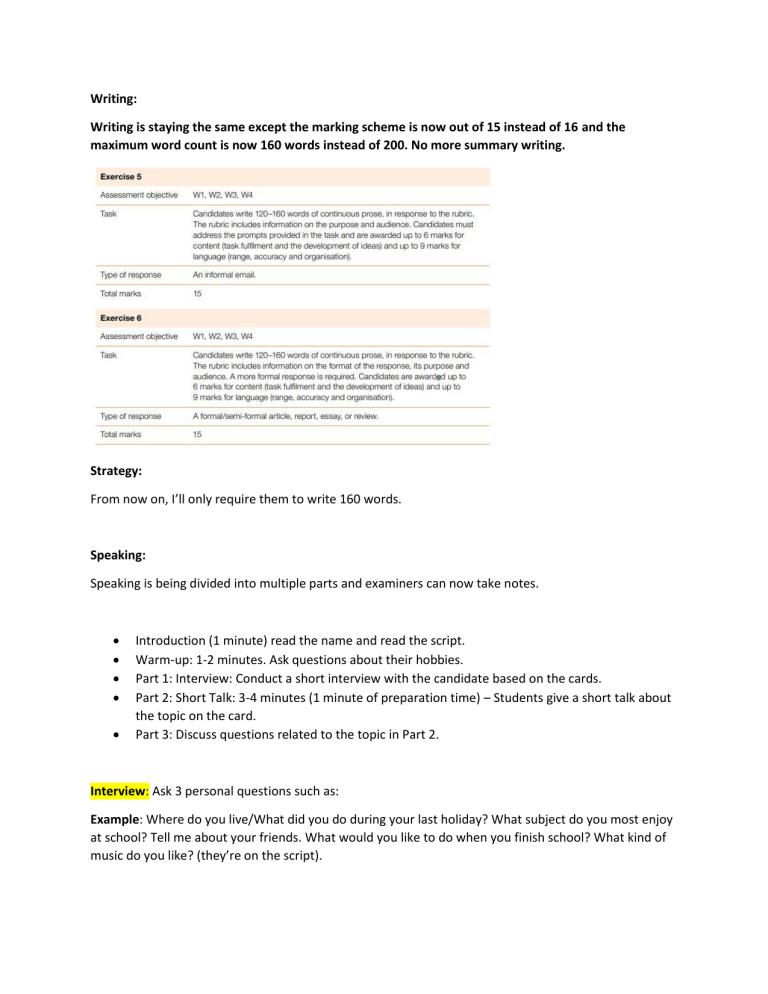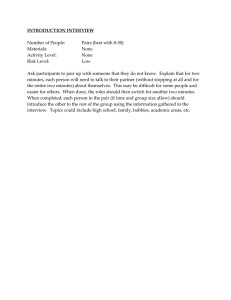
Writing: Writing is staying the same except the marking scheme is now out of 15 instead of 16 and the maximum word count is now 160 words instead of 200. No more summary writing. Strategy: From now on, I’ll only require them to write 160 words. Speaking: Speaking is being divided into multiple parts and examiners can now take notes. Introduction (1 minute) read the name and read the script. Warm-up: 1-2 minutes. Ask questions about their hobbies. Part 1: Interview: Conduct a short interview with the candidate based on the cards. Part 2: Short Talk: 3-4 minutes (1 minute of preparation time) – Students give a short talk about the topic on the card. Part 3: Discuss questions related to the topic in Part 2. Interview: Ask 3 personal questions such as: Example: Where do you live/What did you do during your last holiday? What subject do you most enjoy at school? Tell me about your friends. What would you like to do when you finish school? What kind of music do you like? (they’re on the script). Short Talk: Students need to do a short presentation on a topic. Topics vary. 2 minutes to talk, 1 minute to prepare. Example: 1. Compare a visit to a museum with a visit to a sports and activity center for a school trip. 2. Your family is moving – what are the advantages and disadvantages of having an apartment in the city and having a house in the countryside. Discussion: Example: 1. 2. 3. 4. Do you think students should be involved in planning a school trip? Parents should join their children on school trips. Agree or disagree? Do you think children should be involved in making the decision about moving house? There is an opinion that people who live in the city and people who live in the countryside are different. What do you think? Strategy: Ensure students do monthly presentations where they get used to speaking at length on a topic. Ensure each class has open discussion questions that embed critical thinking.



